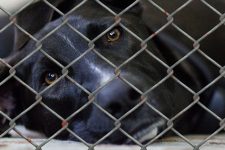What Happens to Seized and Unclaimed Animals?

Under the Companion Animals Act 1998, there are a number of rules that govern how seized and unclaimed animals are dealt with.
If your pet has been found and taken by the council, it will be held for a certain period of time.
After that, it may be considered unclaimed and be re-homed or destroyed.
There are certain regulations that the council is required to abide by when it comes to unclaimed animals.
If you believe that the council has not taken the necessary measures to contact you about your animal, or hasn’t dealt with the situation according to the law, it is a good idea to speak to a defence lawyer who specialises in the law as it relates to animals.
Does the council have to contact me if officers find my pet?
According to the Companion Animal Act, council officers are required to use their ‘best endeavours’ to find and notify you if your animal has been seized and taken to council premises or the pound.
These efforts include checking any microchips or other identifying information, checking local registers of animals, and any other inquiries that might reveal your identity as the owner.
Once they have determined your identity as the owner of the animal, the council is then required to serve you with a notice of possession of the animal.
This can be done in person, through the mail or through a third party.
What should I do if I have received a notice of possession of my animal?
If you have recently received notice that your animal has been seized and is at the pound, you will need to inform the council that you intend to pick up your pet as soon as possible.
You will need to go to the pound in person to claim your animal.
Before your pet can be released, you will be required to pay fees for the maintenance and upkeep of the animal while it was in the possession of the council, and fees for the release.
The council decides these charges.
If you don’t respond to the notice of possession within 14 days of receiving it, the council may sell or destroy your animal.
What if my animal has been involved in an incident?
If your animal is part of a legal investigation, for example, if it is alleged that it harassed or attacked another animal or a person, you may not be allowed to claim it until the proceedings have been finalised. In this case, the animal may be kept at the council pound until you are able to claim it.
If your dog is already registered as a dangerous or restricted dog, the council is prohibited from selling it, which means that if you don’t claim it, it is likely that it will be destroyed.
What if my dog isn’t registered?
If your animal is unregistered and you wish to claim it from the pound, you will be required to register the animal and pay any required fees before you can take it with you.
Will my animal be destroyed if I don’t claim it?
If your animal hasn’t been claimed within the required timeframe, there is a chance that it will be destroyed.
However, under the Companion Animals Act, councils are required to consider whether there is any alternative action they can take.
If so, they are required to take that alternative.






